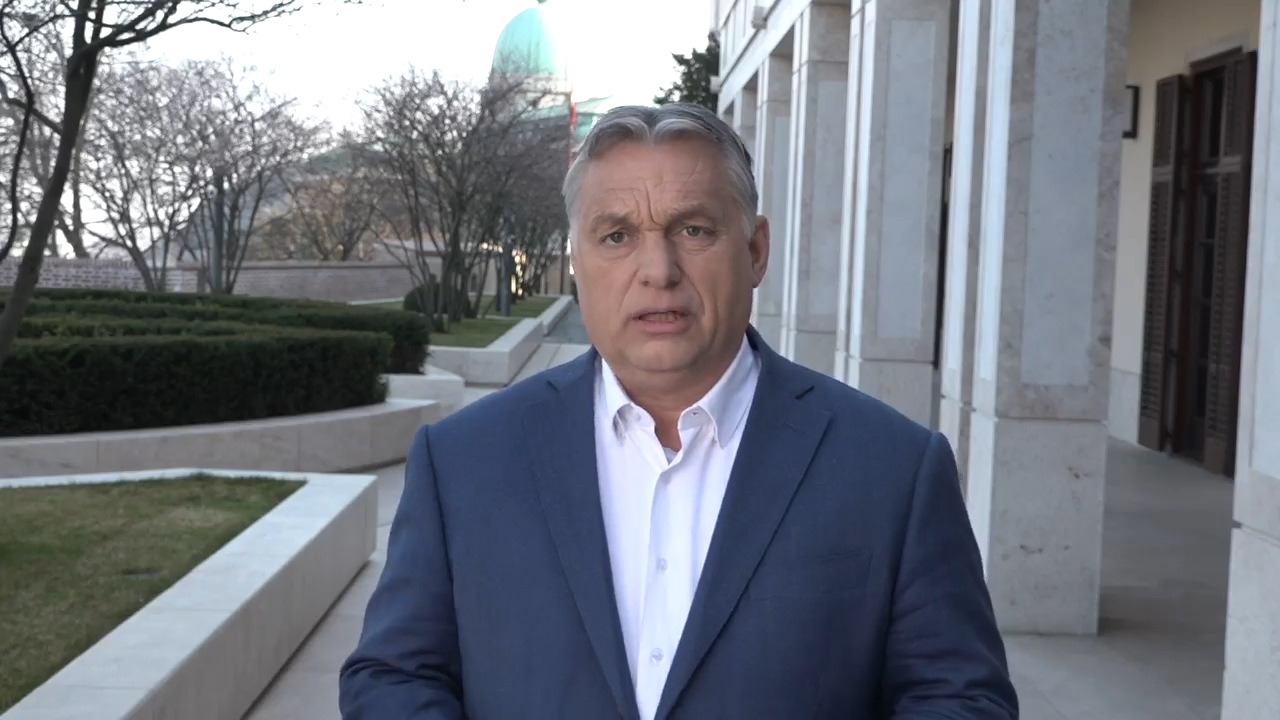"The pandemic has entered its second phase" - Gov't implements economic relief measures, military task force as coronavirus spreads
- Stay updated on the latest news from Hungary by signing up for the free InsightHungary newsletter:
As Hungary began its third day of lockdown on Thursday, the official number of confirmed cases of coronavirus jumped by 15 to a total of 73, the largest single-day increase since the start of the pandemic. One patient has died, two have been cured and 124 remain in mandatory quarantine, according to the government's coronavirus website. Seven patients are in intensive care.
According to national chief medical officer Cecília Müller, the pandemic has entered its second phase in Hungary as the disease is spreads through community contact. Müller announced on Wednesday that the virus had appeared in nearly every region of the country, and she urged people, especially the elderly, to stay in their homes whenever possible.
Military task forces to monitor and coordinate operations of 140 companies of "critical importance"
Special military task forces will be deployed to monitor and ensure the operations of 140 companies of "critical importance", including companies in the energy, telecommunications, transport and healthcare sectors, Defense Minister Tibor Benkő announced on state television late Wednesday.
Neither Benkő nor a government spokesperson would give the names of these companies, but a spokesman for energy group MOL, in which the state owns a 25% stake, told Reuters it was among those involved. Benkő also noted that soldiers would be deployed to the streets of Hungarian cities and towns beginning Friday morning, and that the country had been divided into seven "patrol zones".

According to Benkő, many more companies could be brought under the remit of the special task forces, Reuters reports.
A list of 71 companies to be coordinated by the military task forces was published Thursday afternoon, and can be found here.
Government announces economic relief measures as tourism and commerce grind to a halt
In an address on his Facebook page on Wednesday, Prime Minister Viktor Orbán announced a number of measures the government would take to ease economic pressures caused by coronavirus. According to the government decree published Thursday:
- a moratorium on loan payments for individuals and companies will be implemented until the end of the year (those who wish to continue making their scheduled payments will be permitted to do so)
- employer contributions and payroll taxes in the tourism, hospitality, transportation, entertainment, gambling, film, performing arts, events and sports services sectors will be waived until the end of June. Workers in these sectors must only pay their health care contributions, not to exceed 7,710 Ft (€21) per month. Non-residential rental contracts in these sectors cannot be broken by landlords until June 30, and rental prices cannot be raised
- short-term business loans will be extended until June 30
- the annual percentage rate (APR) for all consumer loans taken out after Thursday will be maximized at 5 percentage points over the central bank's base interest rate, amounting to a maximum APR of 5.9%
- independent contractors in the transportation sector (such as taxi drivers) are exempted from paying their small business tax until June 30.
The Hungarian forint weakened to its lowest ever rate against the euro Wednesday afternoon, reaching HUF 353.4, while its strength against the dollar dropped to more than HUF 326, also a historic low.
Hungary's auto manufacturing industry, which makes up some 4% of GDP, has taken a major hit as Opel, Audi, Suzuki and Mercedes have ceased production.
Border closure causes chaos at airports and border crossings
Hungary's declaration on Monday that it would close its borders to non-Hungarian citizens has caused confusion as foreign residents wondered whether they would be permitted to enter the country. Some government reports indicated that only Hungarian citizens would be allowed to enter, while others suggested that EU and EEA (European Economic Area) citizens with residence permits would be permitted entry.
The ambiguity in the border decree was demonstrated in a Twitter post by East Europe correspondent for The Guardian Shaun Walker, who was closed in a room with 60 other foreign nationals at Budapest Ferihegy Airport after a flight from London. As of writing, the journalist (who has a Hungarian residence permit), had been released after detention at the airport for over 16 hours.
Flew into Budapest around 1am after European embassies got verbal assurances that foreigners who could prove they live and work in Hungary would be allowed in. Nine hours later, I've been confined in a fairly small area with 60 other people and no sign of progress.
— Shaun Walker (@shaunwalker7) March 19, 2020
The border closure caused unprecedented traffic pile-ups at border stations, with a 93-kilometer-long line of trucks backing up at a designated freight transit crossing at Rajka, on the Slovak border. Hungarian truck drivers reported from border crossings with Austria that they had not been permitted to enter Hungary, and that long lines had amassed at the only open crossing point at Hegyeshalom. Reports of a 60-kilometer-long line came also from Hungary's southern border with Serbia.
Thousands of Romanian and Bulgarian citizens congregated at the Austrian border on Tuesday, trying to reach their home countries after the border closure took effect Monday night. They were permitted to transit across the country late Tuesday, and some 12,500 people were reported to have crossed into Romania via this "humanitarian route".
Hungary's decision to seal its borders came only one day before the European Commission voted to close all external EU borders to non-EU citizens. According to the decree tabled by EC president Ursula von der Leyen, only EU/EEA citizens and citizens of the United Kingdom may enter Europe for the next 30 days.
It was announced on Thursday that parliamentary sessions will be moved to the upper house of the parliament, where there are more chairs and PMs can sit further from each other to avoid spreading the virus.
Coronavirus patients will be ordered to home quarantine unless their condition deteriorates
Chief medical officer Cecília Müller announced at the government's daily coronavirus press briefing on Thursday that a new procedure will be implemented for testing and containing the coronavirus.
- Those suspected of coronavirus infection will be tested in their homes, not in hospital
- Tested patients must remain in home quarantine until the results of their tests are analyzed. If their test is positive, they must remain in home quarantine
- The quarantined person will only be admitted to hospital if their condition worsens.
The new measures are meant to preserve dwindling space in hospitals for those whose illness requires immediate treatment. Müller emphasized that elderly people should stay in their homes, and said,
“We are in the final hours. (...) We can only succeed if these measures and advice are followed. I cannot accept indiscipline or humor. There is no place for this right now”.


